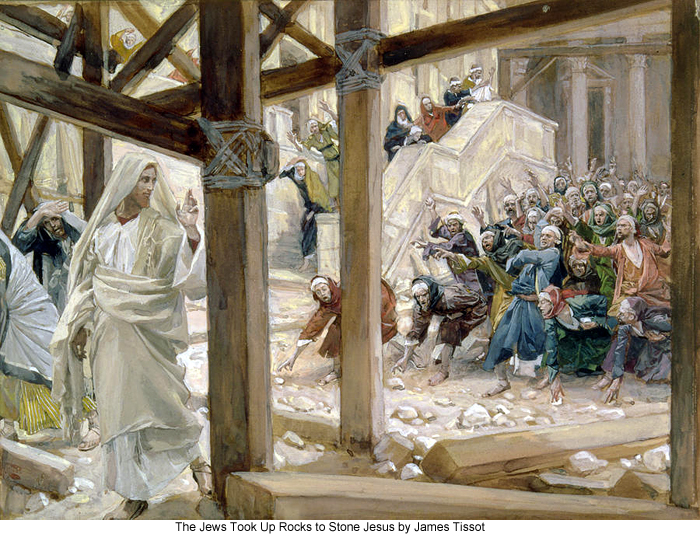Today’s Gospel concludes the long discourse we’ve read in the liturgy over the last week regarding the arguments between Jesus and the Jews who didn’t believe in him (John 8). Yesterday he spoke with some who had believed in him, but, scratching beneath the surface, their faith was shaped more by his telling off the incredulous Jews than by deep convictions. Even yesterday Our Lord warned those in the crowd who believed in him that they were slaves to sin in need of liberation in order to really treat God as their Father again. The response was hostility.
Now Our Lord, having just received another barrage of name-calling due to his teachings (John 8:47–49), and after a long attempt to tell them the truth, a truth that could only be accepted in faith, he lays it on the line: he claims to have power over life and death, and to have seen Abraham and pleased him. The crowds respond that he is possessed (in other words, insane) to think that he is greater than Abraham and greater than the prophets, yet he is. It all comes down to the words for which they sought to stone him: “before Abraham came to be, I AM.” “I AM” was how the Lord told Moses to identify him when he went to free Abraham’s descendants in Egypt (Exodus 3:13–15), and now Jesus was identifying not only his Father as God, but himself. If he is God he’d have power over death, and be able to know Abraham personally. For his listeners that is the last straw.
A deeper relationship with Christ requires not only embracing his humanity, through which he makes himself accessible to us, but his divinity as well. Through faith in him we are led to a deeper trust in him and love for him, and God goes from being some all-powerful being overshadowing us, aloof and distant, to someone who loves us and is close to us. In a week and a day we’ll see the depths of his love on the Cross.
Readings: Genesis 17:3–9; Psalm 105:4–9; John 8:51–59.


